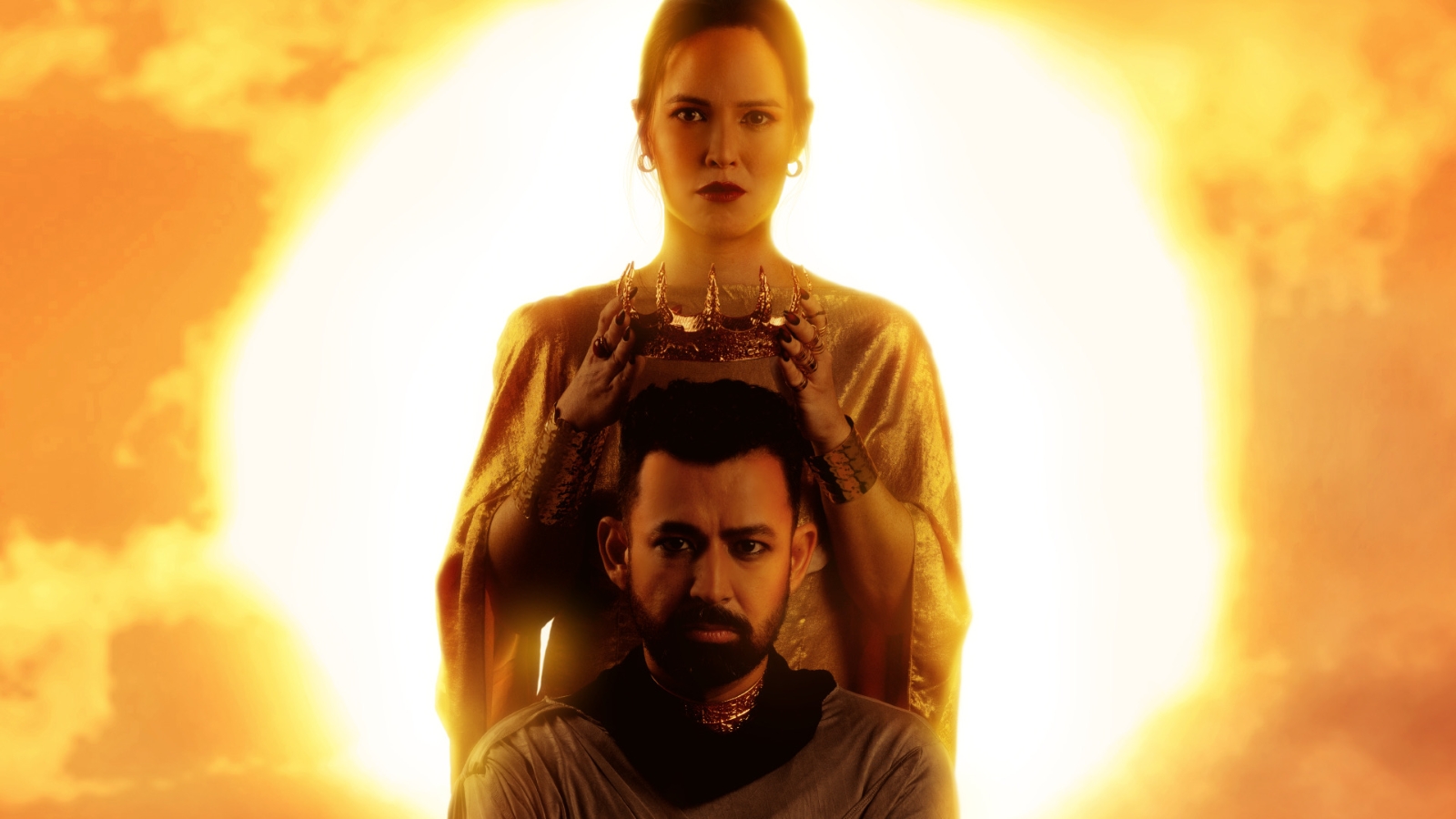In this year’s Shakespeare in the Park, Ghafir Akbar steps into the title role, reuniting with long-time stage partner Julie Wee. With a futuristic setting and high-intensity scenes, Ghafir shares how he’s approaching Macbeth’s unraveling, what it means to trust your scene partner completely, and why this version of the play feels more relevant than ever.
- Macbeth is one of the most psychologically complex characters in Shakespeare’s canon. What excites you most about playing him in this reimagined world?
Along with the compelling plot and language in the play, Macbeth is a man who descends from a passionate, loyal soldier to a guilt-ridden, paranoid tyrant. We see his inner torment trying to achieve and maintain power as prophesied by the Witches. Not to say he himself (and his Lady Macbeth) isn’t ambitious. What makes him complex is his awareness of right and wrong; and makes his actions even more tragic. Was he led by ambition or driven by ambition? Even with supernatural elements filling the air of the play, Macbeth’s turmoil is real and human. It’s a rare opportunity for me to combine the cerebral and the emotional, the poetic and the primal. And no doubt one of the most demanding roles I’ve had the privilege to discover.
- The dynamic between Macbeth and Lady Macbeth is key to the play’s intensity. How would you describe your onstage chemistry with Julie Wee?
This will be my third Shakespeare in the Park with Julie. We have always been paired together, first as Brutus and Cassius (Julius Caesar), then as Oberon and Titania / Theseus and Hippolyta (A Midsummer Night’s Dream). Naturally we come together again being fully attuned to each other’s strengths. I have complete trust in her which makes building the chemistry between Macbeth and Lady Macbeth very easy. We can go further, create deeper and complex relationships that elevate our scenes together. Intensity requires complete trust and with Julie, I know I can take Macbeth to a state that would justify our production.

- The play explores themes of ambition, power, and fate. How do these themes resonate in today’s world, especially in this futuristic setting?
In today’s world, we celebrate ambition. Think of the powerful people in the public sphere, especially those who are in tech, politics, and business, who, we see, often stretch the limit of truth in order to achieve even greater things. Like Macbeth, can we believe that many may become consumed by their growing power and ambition, cutting moral corners to achieve status or success. In a future shaped by predictive algorithms and surveillance, the idea of fate could be tied to data-driven prophecies. Imagine a world where AI predicts your future—would people try to change it or blindly follow it, like Macbeth does after hearing the witches? The tension between free will and predetermined outcomes becomes even more relevant.
- Macbeth has some of the most famous soliloquies in Shakespeare. Is there a particular line or moment that gives you chills every time you perform it?
Perhaps the most famous speech of Macbeth: Tomorrow, and tomorrow, and tomorrow…
It is a deeply profound speech, albeit short, that encapsulates a monumental moment in Macbeth’s journey. It is a speech that I find deceptively simple but if done right, moves me deeply.
Shakespeare in the Park – Macbeth runs from 7 May – 1 Jun 2025 at Fort Canning Park. Get your tickets here.



